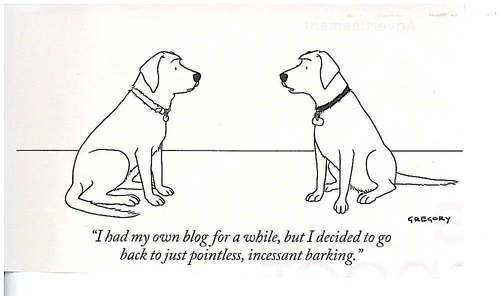This is really interesting — a summary by the Pew Research Center of a survey conducted by the Project for Excellence in Journalism.
If someday we have a world without journalists, or at least without editors, what would the news agenda look like? How would citizens make up a front page differently than professional news people?
If a new crop of user-news sites — and measures of user activity on mainstream news sites — are any indication, the news agenda will be more diverse, more transitory, and often draw on a very different and perhaps controversial list of sources, according to a new study. The report, released by the Project for Excellence in Journalism (PEJ), compares the news agenda of the mainstream media for one week with the news agenda found on a host of user-news sites for the same period.
In a week when the mainstream press was focused on Iraq and the debate over immigration, the three leading user-news sites — Reddit, Digg and Del.icio.us — were more focused on stories like the release of Apple’s new iphone and that Nintendo had surpassed Sony in net worth. The report also found subtle differences in three other forms of user-driven content within one site: Yahoo News’ Most Recommended, Most Viewed, and Most Emailed…
The full report is available here.
This is useful in redressing the balance in the debate about the relationship of user-driven media to mainstream journalism. There’s an assumption that almost anything would be better than the skewed news agendas of mainstream media — that the Jeffersonian ‘marketplace in ideas’ will lead, inevitably, to closer approximations to the truth. This survey, sketchy and inadequate though it is, and Cass Sunstein’s new book, Infotopia: how many minds produce knowledge, (which I’ve been reading) cast some doubts on that comfortable assumption.
Which is a bit distressing, to say the least. It’s always uncomfortable having one’s cherished illusions undermined.
Nick Carr is not in the least distressed by all this, btw. Itr probably confirms what he’s suspected all along.
Rory Cellan-Jones’s report on the survey is here.

